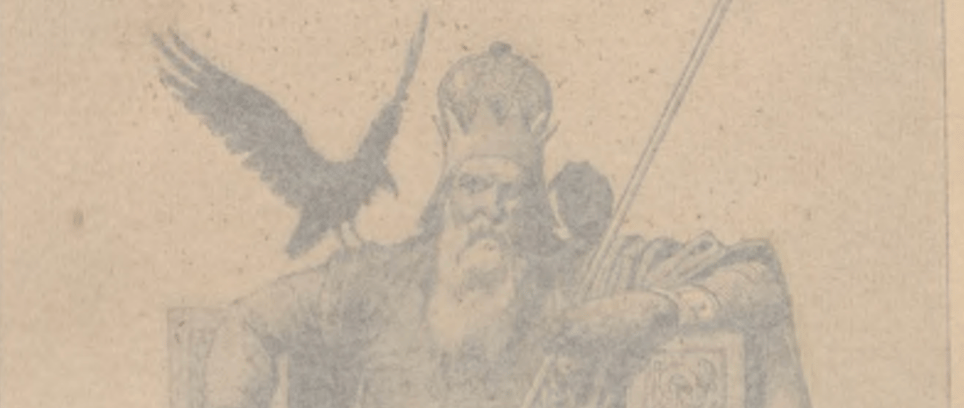The Sagas of the Nordic Gods Told for Young People
"Nordiska gudasagor berättade för barn och ungdom" by Anna Maria Catharina "Kata" Dalström.
9/24/20252 min read


Foreword
It is to the generation that is just now growing up that I dedicate this attempt to present the sagas of our nordic gods in a short and simple way, in which are hidden treasures of immeasurable worth, not least for the young, whose feeling and imagination are so very receptive to the powerful and free worldview that constitutes the basis for these stories.
With these tales I have also tried to do my part, in a small way, to help meet the ever more apparent need of appropriate children’s literature.
The sources that I have consulted are the nordic mythological studies by Afselii, Bugge, Grundtvig, Gödecke, Munch, and Rydberg, as well as an older translation of the Prosa Edda. The verses are quoted from Gödeckes translation of the Poetic Edda.
I beg Ms. Ellen Key to accept my thanks for the valuable advice she has given me while I worked on this book.
Stockholm, October 22, 1887.
The author.
Selections from the Sayings of the High One.
2
Hail to thee, generous one!
The guest has come;
Tell me, where shall he sit!
Troubled hurries he,
who tests his success
by another’s doorpost.
10
A better burden
can no man carry
than great wisdom;
more than estates and gold
it benefits an a man in the unknown
and shields a man who is lost.
34
It is a circuitous route
To a man with whom you are on unfriendly terms
Though his home lies on the road
But to a good friend
There are shortcuts
Even if he has traveled far away.
36
Better your own home,
Though it be a cottage:
Every man is a master in his home.
Though you toil with but two goats,
And roof of thatch,
It is not so hard as begging.
44
If you know a friend
Whom you trust
And you would have him do you good,
Share his opinions,
Exchange many gifts,
Travel doggedly to meet him.
48
A generous, brave
Man has it best,
Rarely does he nurse his sorrow;
But the cowardly
Are afraid of everything,
The greedy surrender for gifts.
53
Small ridges of sand,
Small waves;
Small are the minds of men.
Not all stand
Equally in wisdom:
Every time has two kinds????
59
Rise up early
Encourage your workers;
If you have few, then follow them!
Much goes slowly
If you in the morning sleep;
Industrious is half rich.
133
Vices and virtues
The sons of mortals
Bear together in their hearts
No one is so free of fault
That he has no fault,
No one is so worthless, that he is good for nothing.
The Creation of the Worlds
When time began there was nothing.
There was no sand, no sea,
Nor cool waves,
The earth did not rise,
No heaven was above.
All that existed was a gaping chasm, called Ginnungagap. On the one side, below the chasm, was Nifelhem, the world of cold and darkness, and on the other side, above Ginnungagap, was Muspelhem, the world of light and heat.
From the well of Hvergelmer, which lay in Nifelhem and had existed since the beginning of time, flowed streams, which were called Eliwaves.
